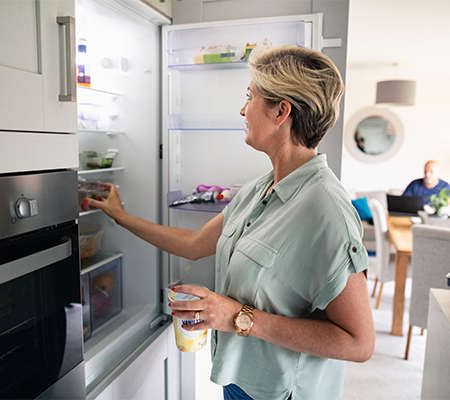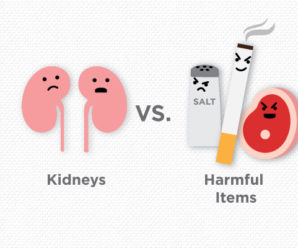
According to the American Cancer Society, stomach cancer accounts for about 1.5% of all new cancers diagnosed in the U.S. each year, making it one of the less common cancers in the U.S.
Due to the limited number of cases, there is no national screening program for stomach cancer. This leads to most cases of stomach cancer being caught at a later and more serious stage.
“In western countries, the rate of stomach cancer is low. It is especially evident when you compare our stomach cancer rates to those in Japan and other East Asian countries. Japan has such high rates, they have a national screening program similar to how we screen for breast cancer,” said Dr. Rohit Sharma, surgical oncologist with Cancer Care & Research at Marshfield Clinic Health System.
Researchers believe it has something to do with our diets. Dr. Sharma also pointed to research that has shown an association between an increase in the use of refrigeration and a decrease in stomach cancer cases.
Common symptoms
You should talk to your doctor if you experience any of these symptoms for longer than a month:
- Difficulty swallowing food
- Nausea and vomiting
- Loss of energy
- Upper abdominal discomfort (bloated or full)
- Unexplained weight loss
If you have reflux, that may put you at increased risk of having cancer where the esophagus joins with the stomach, commonly referred to as GE junction cancers.
Talk to your doctor if you have a history of stomach cancer in your family because that puts you at increased risk for developing the disease. In this case, your doctor may recommend a screening program to detect stomach cancer sooner.
Having a long-term untreated infection with a special bacteria known as Helicobacter Pylori (H. pylori) is also strongly related to an increased risk of stomach cancer.
Your care team
When treating stomach cancer, it is important to have a system of care established that includes several key resources.
Prior to treating stomach cancer, it is important to have advanced diagnostics available. An upper gastrointestinal endoscopy allows your care team to look at the stomach and get a biopsy to help with the diagnosis. An endoscopic ultrasound (EUS) is a specialized procedure, performed at few centers of excellence, such as Marshfield Clinic Health System. It can help in quite accurately staging the cancer and provide information about spread of disease in the lymph nodes. Computerized tomography (CT) scan or Positron Emission Tomography (PET) scans also may be recommended to help determine how far the tumor has spread and what stage it is.
Your care team will use the information gathered from the diagnostic testing to determine the best way to treat your cancer. Your care team should include medical oncologists, surgical oncologists, radiation oncologists and other support staff that meet regularly on a tumor board to discuss how best to treat your cancer.
“Tumor boards are a place where all the layers of the cancer care medical field get together and talk about what is the best way forward for each patient,” Dr. Sharma said. “Stomach cancer typically presents as a very aggressive cancer, so it is important to have as many specialists as possible looking at your case to ensure you have the best treatment plan. This is why all newly-diagnosed stomach cancer patients are discussed in the tumor boards here at Marshfield Clinic Health System.”
To treat stomach cancer, it is important to have a surgical oncologist complete the complicated surgery. Surgical oncologists are surgeons that only do cancer surgeries. Having a surgical oncologist trained in robotic surgery also can help you heal faster after the surgery.
Having access to clinical trials also is very important with more advanced cancers because clinical trials provide access to newer, advanced pipelines of medicines.
Treating stomach cancer
A surgery is needed to treat gastric carcinomas. This surgery can be completed using robotic surgery or an open technique depending on how advanced the cancer is. During the surgery, much of the stomach and surrounding lymph nodes are removed. Then the surgeon will repair the gastrointestinal tract.
Patients should expect to stay in the hospital for 1-2 weeks following surgery. Your diet also will change, requiring smaller, frequent meals. Following surgery, immunotherapy and chemotherapy may be required to make sure the cancer is gone. For GE junction cancers, radiation therapy is often needed for treatment as well.
A much simpler surgery is needed for a different type of stomach tumor called Gastro Intestinal Stromal Tumor (GIST). This surgery removes the tumor, but leaves behind the rest of the stomach and lymph nodes. This surgery is typically performed robotically and patients can go home after one night in the hospital.
For more information about stomach cancer, talk to your provider.







Leave a Reply